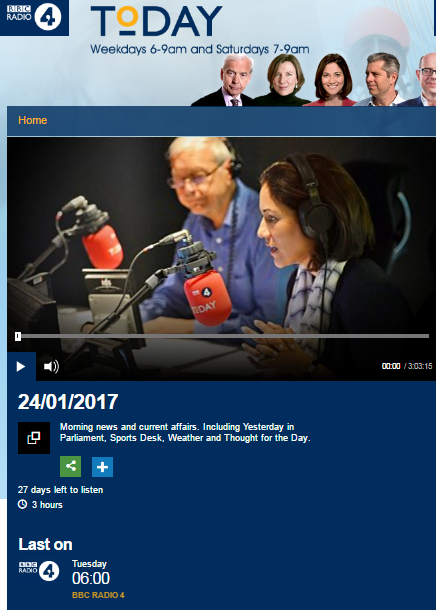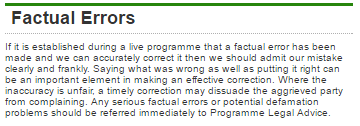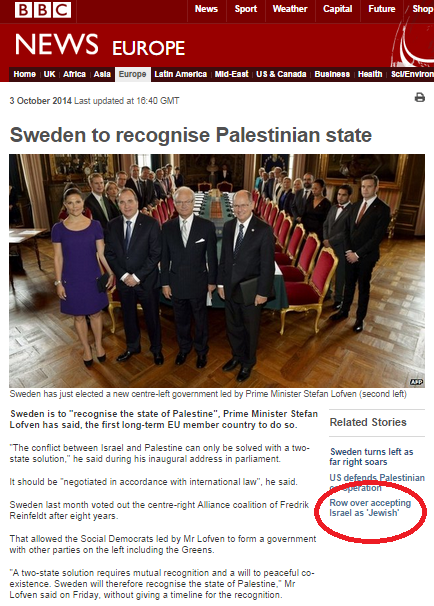The January 24th edition of the BBC Radio 4 programme ‘Today’ included an interview by Mishal Husain with the Israeli MK Haneen Zoabi.
As was noted here at the time:
“None of Zoabi’s blatant propaganda and incitement concerning Israel was challenged by Husain – including her inaccurate claim that the entire city of Jerusalem is “occupied”, the lie that Israel “expelled 85% of the Palestinians in 1948”, the falsehood of “87 racist laws” (with Zoabi adding yet another one since she made a similar claim at the PSC AGM just three days earlier) or the unsourced allegation that 30 thousand ‘Palestinians’ are being ‘evacuated’ “from the Negev” (it was 13,000 at the PSC AGM) – which of course actually relates to the Umm al Hiran story and the generously compensated relocation close by of Bedouin squatters.”
BBC Watch submitted a complaint concerning the misleading of listeners due to the interviewer’s failure to correct Zoabi’s inaccurate statements and false claims. The response received includes the following:
“First of all I’m sorry for the delay in coming back. I know people appreciate a prompt response, it’s taken us longer than usual to respond here – apologies. I understand you feel that Mishal Husain failed to challenge statements by Haneen Zoabi.
I have reviewed the piece – the aim here was to find out what Palestinians make of Donald Trump. Mishal began the interview by asking “What do you think Donald Trump means for the Palestinians?”
Mishal did take her up on the point about the American Embassy, explaining that the White House press secretary said that they were at the very first stage of even discussing the subject.
We always seek to ensure that the interviewer’s particular question is answered by the guest first and foremost. Ms Zoabi spoke at length and very quickly and passionately. The interviewer always seeks to interject when appropriate, balancing the need for a clear discussion with appropriate interaction. It’s an art form rather than a simple science, but we’re confident that in due course, a fair reflection of each side’s long-running stances was offered to listeners over the two days. Tzipi Hotovely, Israel’s deputy minister of foreign affairs, was interviewed the day before in order to provide a contrasting view.
It was clear that these comments were claims made from her established perspective – listeners can judge the different arguments for themselves. Mishal intervened, contrasting Hanin’s settlement claims with the position offered the previous day, where the Israeli view was that settlements are not the only issue. The area of questioning here was not ‘What exactly is happening now?’ but rather ‘How does the new US approach to the Middle East appear to Palestinians?’.
In a fast-flowing interview situation, it may not always be possible for an interviewer to cross-check every statement and claim that is made by a guest, we’re sorry to hear this spoiled the interview for you. This issue could occur across a range of programmes, with a variety of guests and topics. There is no intention to treat any particular argument differently. We’d like to reassure you that there is no ulterior motive in either challenging or not challenging specific points on any occasion.” [emphasis added]
Quite how the BBC arrives at the conclusion that “listeners can judge the different arguments for themselves” if they are not provided with accurate information to counter false claims such as the ones made by Zoabi is unclear.
The statement “it may not always be possible for an interviewer to cross-check every statement and claim that is made by a guest” is clearly at odds with the BBC’s editorial guidelines on live output which state “we should take special care to minimise the risks involved” and go on to define those risks as including “broadcast of derogatory or libellous comments” and “misleading of audiences”.
Regarding “offensive comments” and “factual errors” – which are defined in those guidelines as “a serious incident in a live broadcast” – the guidelines state:


BBC Complaints, however, informs us that an interviewer cannot always be expected to “cross-check” claims made by an interviewee.
BBC Watch wrote back pointing out that if that is indeed the case, it may be prudent to avoid live interviews with guests with an established reputation for dissemination of politically motivated falsehoods. We have not received a satisfactory reply.




